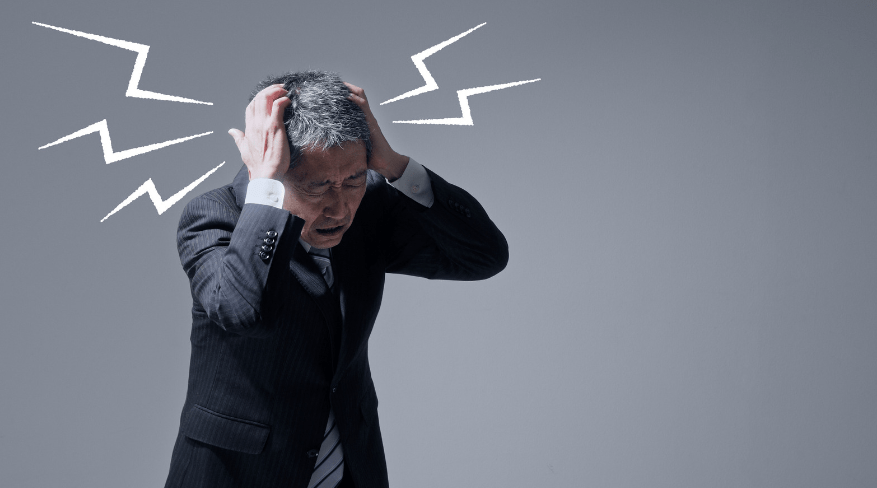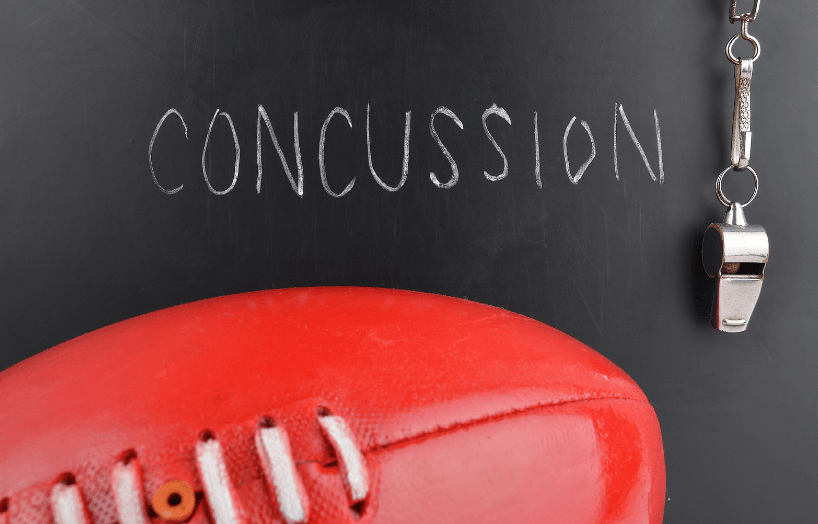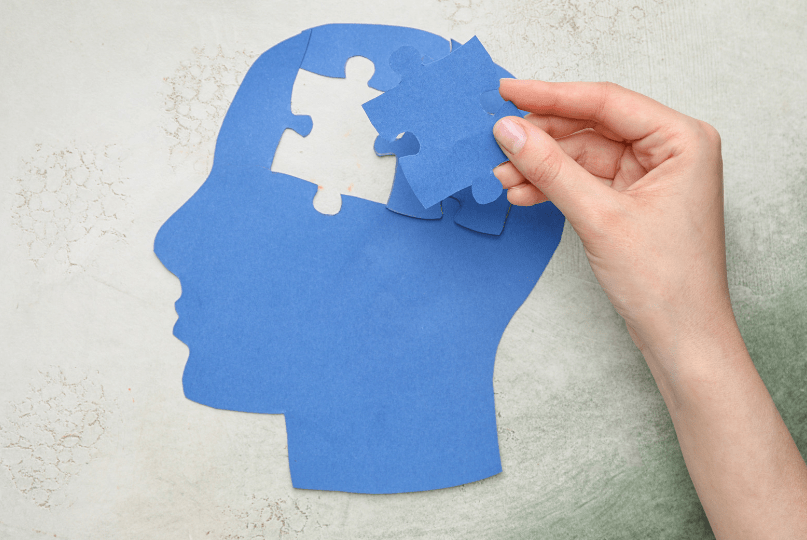If you or someone you know experiences a concussion, it is important to be aware of the steps to take for proper healing. Concussions can be serious injuries, and though many people may think they will “shake it off” and be fine, this is not always the case. In this blog post, we will outline the steps to take when you get a concussion and some tips for preventing them in the first place.
What is a concussion?
A concussion is a mild traumatic brain injury resulting from a forceful impact on the head. While many people associate concussions with:
- Sports injuries are among the most common causes of concussion, especially in contact sports like football, hockey, and rugby.
- Car accidents – When you get into a car accident, there is always the risk of head injuries and concussions.
- Falls or blows to the head – Accidental falls, a serious head injury, or another blunt force impact can also cause concussions.
- Violent assaults – Another common cause of concussion is violence, such as the impact of being repeatedly punched in the face.
While some concussions are mild and heal on their own with rest, others can be quite severe and require medical treatment, including surgery or medication. It’s important to seek medical attention if you suspect a concussion.
A concussion is relatively minor in most cases and may go unnoticed or be misdiagnosed as something less serious.

Signs and Symptoms
However, concussions can lead to more extensive brain damage and even death if not properly managed. Because of the serious consequences associated with this condition, it’s important to be aware of the signs and symptoms of concussion so that you can seek prompt medical treatment if needed.
Concussion Symptoms may vary from person to person; some of the most common signs and symptoms include:
Headaches
People with concussions often experience headaches that are more severe than normal. These headaches may persist for days or weeks after the initial injury. If you experience a severe headache after a head injury, it is important to see your doctor for a proper diagnosis.

Dizziness
Another common symptom of concussion is dizziness or loss of balance. If you feel off-balance or that the world seems like it’s spinning around you, this could signify a mild brain injury.
Nausea and vomiting
Some people with concussions also feel nauseous or vomit after the injury. This is usually a result of the brain swelling and pressure on the surrounding structures.
Fatigue
Fatigue is another common symptom, as the brain requires a lot of energy to heal. It is important to get plenty of rest if you have a concussion so that your body can focus on healing.
This is because your brain needs an uninterrupted time to recover from the injury.
Confusion and Memory problems
One of the most obvious symptoms of concussion is confusion and memory problems. If you have a hard time remembering things or seem more confused than usual, it’s important to get checked out by a doctor.
Other possible symptoms include light sensitivity, ringing in the ears, changes in vision or speech, depression and irritability, and difficulties concentrating or making decisions.
At any sign of these symptoms after an impact on the head. That way, you can reduce your risk for more severe complications.
These symptoms can vary in severity over time, so it is important to be aware of the risk factors and seek medical attention if you suspect that you have experienced a concussion.
Whether you are an athlete or simply someone who leads an active lifestyle, being aware of concussions’ dangers and warning signs can help protect you against long-term health consequences like brain damage and cognitive decline.
Types of Concussions
Concussions are a type of brain injury that can occur after a blow to the head. Doctors rank the severity of concussions based on symptoms like loss of consciousness, amnesia, and loss of equilibrium.
There are three grades of concussion:
- Grade 1 Mild Headaches are the most common type of pain, with symptoms lasting less than 15 minutes and no loss of consciousness.
- Grade 2 is a stage of moderate symptoms, which last longer than 15 minutes and don’t cause loss consciousness.
- Grade 3 is a very serious condition. It can lead to loss of consciousness that might happen for seconds or more, and this type requires an emergency response immediately!
Most people who suffer a concussion may or may not have long-term effects. Still, some may experience problems like headaches, dizziness, and fatigue for weeks or even months after the injury.
Steps to take when you get a concussion
If you think you have a concussion, it is important to see a doctor. Concussions can cause serious problems, including brain damage, so it is important to get prompt medical attention. Once a doctor has seen you, there are several things you should do to help recover from a concussion.
First, it is important to limit physical activities and rest your mind and body. This means no
- Screen time
- Listening to loud music before bed
- Get plenty of sleep (at least 8–10 hours in 24 hours)
- Reading
- Avoid caffeine
- Keep regular sleep and wake times.
Or other mental activities that could further tax your brain. You should also avoid physical activity until your doctor gives you the okay. It is also important to eat healthy foods and drink plenty of fluids to help your body recover.
Finally, be sure to follow up with your doctor for any further instructions or tests that may be needed. Most people fully recover from a concussion within a few weeks with proper care.

How to prevent concussion
There are many things that we can do to prevent concussions. One of the most important steps is to wear protective gear when participating in activities that put us at risk for a head injury, such as:
- When biking
- Playing contact sports
- Riding a motorcycle.
In addition, practicing good safety precautions can help avoid falls and other accidents that could lead to concussions. For example, wearing proper footwear and keeping floors clear of clutter are simple measures that one can take to reduce the risk of getting hurt.
Additionally, it is important to be aware of the signs and symptoms of concussion. If you or someone else experiences a head injury, you can seek prompt medical attention. We can help protect ourselves from this serious condition and keep our brains healthy and functioning properly by following these tips.
Concussion treatment
Concussion treatment generally consists of pain medications and activity modifications. Rest and reducing time spent on activities that strain the brain, such as sports, video games, TV, or socializing, allow the brain to recover.
One can use medication for headache pain or anti-nausea medication to manage symptoms. Additional therapies, such as occupational or physical therapy, may be recommended in some cases. A concussion is a serious injury, so it is important to follow your doctor’s instructions for treatment and not return to activity until the clearance is given.
Concussion do’s and don’ts.
Below is a list of concussion do’s and don’ts. Whether you are an athlete, student, or simply someone who enjoys being active, it is important to be aware of concussion risks and know how to properly respond if you or someone you love sustains a head injury.
One of the most important things to remember when dealing with concussions is that every situation is different. While certain guidelines and don’ts generally apply, it is essential that anyone who has suffered from a concussion consult with their doctor for personalized recommendations based on their specific injury.
Some of the most important things to keep in mind when dealing with a concussion include:
- Getting medical attention as quickly as possible after sustaining an injury. You can help ensure that the best treatment options are available and assess for any potential complications by seeking medical attention immediately.
- Avoid activities that could potentially worsen the injury or prolong recovery. This includes physical and mental activity, so try to avoid screen time, loud music, reading, or other cognitively demanding tasks.
- Eating a healthy diet, drinking plenty of water, and getting enough sleep can all help to promote healing.
- Resting both physically and mentally for a few days so that your brain can recover from the injury.
- Finally, be sure to follow up with your doctor for any additional testing or recommendations that may be needed. Most people fully recover from a concussion within a few weeks with proper care. By following these tips, we can all take steps to protect ourselves.
In addition, it is crucial to avoid drinking alcohol or taking drugs in any form until your doctor has cleared you to do so. Finally, it is essential not to return to activity until you have fully recovered and been given the green light by a medical professional. Whether we like them or not, concussions are a part of life – and by following these simple do’s and don’ts, we can ensure that they will not interfere with our ability to pursue our
What are the long-term effects of concussion?

A concussion is a serious condition that can have long-term effects on a person’s health. While the immediate symptoms of concussion, such as
- Headaches
- Dizziness
- Fatigue,
Over time, they may subside; this injury can have lasting consequences if not properly treated. For example,
- Chronic headaches
- Cognitive impairment
- Depression and anxiety
- Sleep problems and
- Memory issues may all be symptoms of a previous concussion.
Additionally, individuals who experience concussions are at increased risk of developing other conditions such as depression, anxiety, and post-traumatic stress disorder.
Therefore, seeking medical attention after experiencing head trauma is essential to prevent or mitigate these long-term effects. With prompt diagnosis and treatment, individuals can manage the ongoing symptoms of concussion and maintain their overall health and well-being.
When to seek emergency care
It can be hard to know when to seek emergency care, but certain signs and symptoms warrant a trip to the hospital.
- If you lose consciousness,
- start to experience continuing confusion or vomiting,
- or have a headache that gets worse and does not go away,
You should seek emergency care. Additionally, if you have:
- Vision problems
- Such as dilated pupils in one or both eyes or blurred vision
- Numbness
- Weakness
- Tingling or loss of coordination in the arms or legs, or cognitive problems, such as slurred speech or memory difficulties
You should also seek emergency care. Do not hesitate to go to the hospital if you are experiencing any of these symptoms – it could mean the difference between life and death.
What is the outlook for someone with a concussion?
Concussions can range in severity from mild to severe, and they can have a variety of short- and long-term effects. Most people who sustain a concussion will fully recover with proper rest and treatment within a few weeks.
However, some people may experience lingering symptoms for months or even years after the injury. The outlook for someone with a concussion depends on the severity of the injury and how well it is treated. With prompt and appropriate treatment, most people will make a full recovery.
However, some people may experience long-term effects from their concussion. If you or someone you know has sustained a concussion, it is important to seek medical attention as soon as possible to ensure the best possible outcome.
Concussion diagnosis
When a person experiences a concussion, the first step to diagnosis is typically a medical history and physical exam in an emergency room. This involves asking about the specific symptoms and how long they have been present and conducting a full physical assessment of the individual.
In some cases, additional testing may be necessary to understand better what is happening in the brain and rule out other conditions causing similar symptoms.
Common tests used for concussion diagnosis include CT scans and MRIs, which can provide insight into any damage or injuries to the brain tissue. Ultimately, accurate concussion diagnosis requires careful evaluation by a health care professional who has experience with these conditions.
Frequently Asked Questions
The following are some frequently asked questions about concussions:
What is the best thing to do for a concussion?
The best thing to do for a concussion is rest and avoid any activity that could exacerbate symptoms. This includes physical exertion, mental stimulation, and screen time. It is also important to drink plenty of fluids and eat a healthy diet to help the body recover.
If necessary, seek medical attention from a healthcare professional who has experience treating concussions, as they can prescribe treatments to help manage symptoms and minimize the long-term effects of concussions.
What are the three symptoms of a concussion?
There are many different symptoms of a concussion. Still, some of the most common include headache, dizziness or vertigo, nausea, and vomiting, vision problems such as blurred or double vision or dilated pupils, feeling dazed or confused, difficulty concentrating or remembering things, tingling or numbness in the arms and legs, and loss of coordination.
If you or someone you know experiences these symptoms following a head injury, it is important to seek medical attention for prompt diagnosis and treatment.
What not to do if you have a concussion?
If you have a concussion, there are certain things that you should avoid doing. These include excessive physical or mental exertion, screen time on electronic devices, and activities that may exacerbate your symptoms. It is also important to stay well-hydrated and eat a healthy diet to promote healing and recovery. In addition, you should seek medical attention from a doctor who has experience treating concussions, as they can provide treatment options and help prevent long-term effects.
How long do concussions last?
The duration of a concussion can vary depending on several factors, including the severity of the injury and how quickly treatment is sought. In many cases, symptoms may last for a few days or weeks. However, it is important to be aware that concussions can sometimes result in more serious long-term effects such as memory problems, difficulty concentrating, and changes in mood or behavior.
Should I sleep after a concussion?
Many people experience fatigue and sleepiness after sustaining a concussion. While it is important to get plenty of rest, you should avoid sleeping for more than a few hours as this can worsen symptoms. If you have difficulty sleeping, talk to your doctor about ways to improve your sleep quality.

